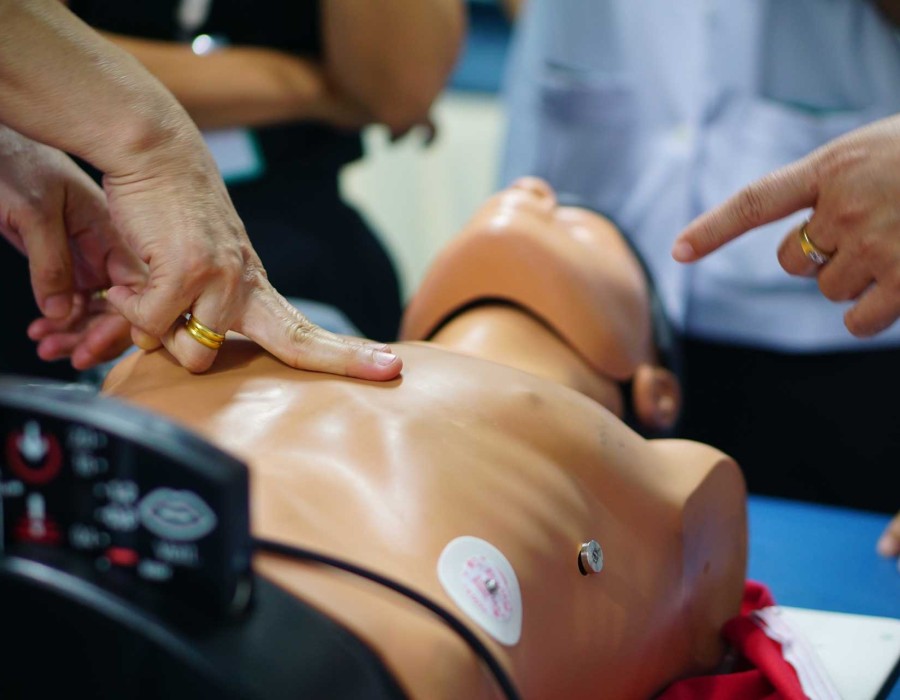CPR (Cardiopulmonary Resuscitation) is a life-saving technique that is crucial in emergency situations where someone's breathing or heartbeat has stopped. In a bustling city like San Diego, the importance of being trained in CPR cannot be overstated. This guide aims to provide comprehensive information on CPR certification classes available in San Diego, their benefits, and what you can expect from these courses.
Importance of CPR Certification
CPR certification is essential for various reasons. Firstly, it equips individuals with the skills needed to save lives in emergencies. Cardiac arrests can happen anywhere, at any time, and having the knowledge to perform CPR can significantly increase the chances of survival for the victim. Secondly, CPR certification is often a requirement for many jobs, especially in healthcare, education, and public safety sectors. Being certified can open doors to new career opportunities and provide a competitive edge in the job market.
Overview of CPR Certification Classes
CPR certification classes in San Diego are designed to teach participants how to perform CPR on adults, children, and infants. These classes are usually divided into several modules that cover different aspects of CPR and first aid. Here is an overview of what you can expect:
- Introduction to CPR: This module covers the basics of CPR, including its importance and the science behind it. Participants will learn about the function of the heart and lungs and how CPR helps in maintaining blood flow and oxygenation to vital organs.
- Hands-on Training: Practical sessions are a crucial part of CPR certification classes. Participants will practice chest compressions, rescue breaths, and the use of Automated External Defibrillators (AEDs) on mannequins. This hands-on training ensures that individuals are comfortable and confident in performing CPR in real-life situations.
- First Aid Techniques: Many CPR certification courses also include first aid training. This covers common medical emergencies such as choking, bleeding, burns, and fractures. Participants will learn how to assess and respond to these emergencies until professional medical help arrives.
- Certification Exam: At the end of the course, participants will undergo a written and practical exam to test their knowledge and skills. Successful completion of the exam results in CPR certification, which is valid for a specified period, usually two years.
Finding the Right CPR Certification Class in San Diego
San Diego offers a variety of options for CPR certification classes. Here are some tips to help you choose the right one:
- Accreditation: Ensure that the class you choose is accredited by recognized organizations such as the American Heart Association (AHA), the American Red Cross, or the National Safety Council. These organizations set the standards for CPR training and certification.
- Instructor Qualifications: Check the credentials of the instructors. They should be certified professionals with experience in teaching CPR and first aid.
- Course Format: Consider the format of the course. Some classes are offered in-person, while others are available online. In-person classes provide hands-on training, which is crucial for mastering CPR techniques. However, online courses can offer flexibility for those with busy schedules.
- Class Size: Smaller class sizes allow for more personalized instruction and better interaction with the instructor. Look for classes that maintain a low student-to-instructor ratio.
- Reviews and Recommendations: Read reviews and ask for recommendations from friends, family, or colleagues who have taken CPR certification classes. Positive feedback from previous participants can be a good indicator of the quality of the course.
Benefits of CPR Certification
Obtaining CPR certification offers numerous benefits, both personally and professionally. Here are some of the key advantages:
- Saving Lives: The most significant benefit is the ability to save lives. Knowing how to perform CPR can make the difference between life and death in emergency situations.
- Confidence and Preparedness: CPR certification provides the knowledge and skills needed to respond effectively in emergencies. This boosts confidence and ensures that you are prepared to take action when needed.
- Career Advancement: For those in healthcare, education, or public safety, CPR certification is often a job requirement. Having this certification can enhance your resume and improve your job prospects.
- Community Safety: By becoming CPR certified, you contribute to the overall safety and well-being of your community. The more people who are trained in CPR, the better the chances of survival for cardiac arrest victims.
- Legal Protection: In some regions, Good Samaritan laws protect individuals who provide emergency care, including CPR, from legal liability. Being certified demonstrates that you have received proper training, which can offer additional legal protection.
Conclusion
CPR certification classes in San Diego are an invaluable resource for anyone looking to gain life-saving skills. Whether you are a healthcare professional, a teacher, a parent, or simply a concerned citizen, obtaining CPR certification can make a significant impact. By choosing an accredited course with qualified instructors, you can ensure that you receive the best possible training. The benefits of being CPR certified extend beyond personal and professional growth; it is a step towards creating a safer and more prepared community.
If you are considering enrolling in a CPR certification class, take the time to research your options and choose a course that meets your needs. Remember, the skills you learn could one day save a life.





Comments